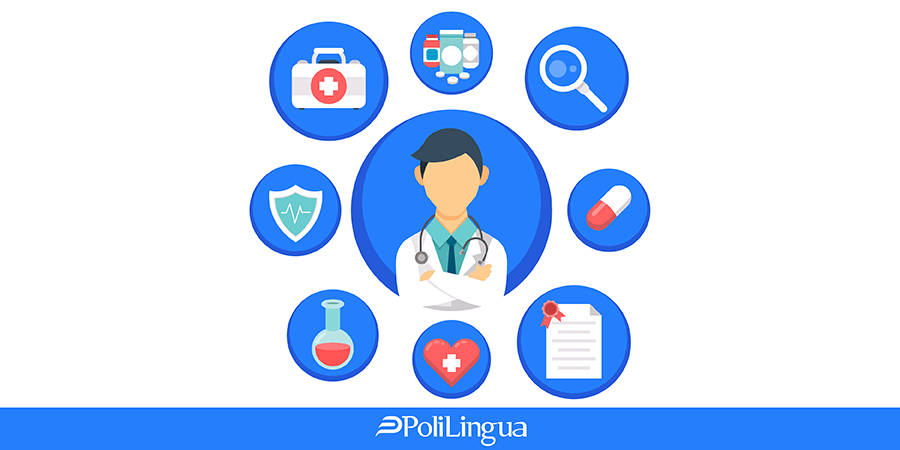
Why Medical Translation Services Matter?
''Language has been described as medicine's most essential technology - the principal instrument for conducting its work.'' - (Jackson, 1998)
Language is the most common barrier in any health care setting and has been found to be a risk factor with adverse outcomes. Health care providers and patient communication are positively correlated with improved health outcomes. Health outcomes include medication regimen, preventive testing and patient satisfaction.
Medical translation services are vital to providing quality care to foreign language speakers. Hospitals, emergency rooms, doctor's offices, public health organizations and nurses' stations utilize translators to help make the check-in process easier, as well as obtain accurate patient information for patient records. Medical translation services assist in the translation of medical records, consent forms, insurance claims and medical histories. Research labs also use language translators to assist in translation of clinical trials and research, as well as patents and licensing. Medical equipment manufacturers often require the use of translators to write manuals and instructions in the appropriate language for users who will be using the equipment. Catalogues that contain descriptions of the equipment also require careful translations in order for customers to read and understand.
All medical and life sciences translations would fall under the category of “Premium” or “High Quality Translation Services”. Why so? If the different levels in expected translation “quality” are perfectly understandable, the medical and life sciences industry deals with something that concerns us all: our health, and sometimes life and death treatments. Clinical trials are undertaken and repeated many times under strict regulations. The trials have to be carried out in several countries and by different institutions or laboratories in order to be approved at a national level.
Quality matters in life sciences and medical translations. A large number of people from doctors to nurses to consumers, in fact, the entire supply chain is placing their faith in the accuracy of the translation. It may sound like common knowledge, but quality in medical translations matter because it is life-critical.
You simply cannot afford to get a medical prescription wrong. It may cost a life.
Only translation agencies with enough resources and technology available can assemble an efficient team for translation, proofreading, terminology management and quick checking.
Here are 5 reasons why we need 100 % accuracy when dealing with medical linguistic services:
1. Errors are unacceptable
Medical translation needs technical precision. You can’t exclude, add or substitute anything. An incorrect word causes complications, as doctors can’t tell whether their new instruments have correct instructions or not.
Omission of information can be equally problematic. For example, leaving out key data in dosage instructions can transform a perfectly good medication into life-threatening pills. A word left out in a patient’s file can change a diagnosis.
2. Bad translation can cause death
People can die when hospitals fail to provide professional language services for their patients. Using family members as interpreters can lead to fatal errors. The same is true when placing the translation responsibility on bilingual doctors. Medical language is complex, including specific terminology that can vary between different languages.
Specialized translators often take years to learn how to handle specific situations and problems in medical translation. Their accuracy makes the difference when even a small mistake can cost lives.
3. Incorrect medical translation in the pharmaceutical industry puts people at legal risk
Experts in the field of medical translation have an essential influence over the pharmaceutical industry. Their job is to make sure that every imported medication on the market is accompanied with accurate information.
Each label on the bottles and inside the packaging must include a wide range of details, such as: indications and usage, storage instructions, dosage forms, warnings and precautions, side effects / adverse reactions, drug interactions, contraindications, expiry date and so forth.
4. Inappropriate translation can lead to authorization disapproval
Even the best medication can receive a denied authorization if translators have failed in their job. A small mistake in converting measurements, for example, can make an efficient pain killer inappropriate for human use or render a clinical trial irrelevant.
Experts know that medical translation demands 100% accuracy for each target language. They consider all aspects when embarking on a translation project in the industry: style, layout and content standard. This way, all relevant information is included on the new label.
Incomplete documentation will lead to authorization disapproval which will translate into unnecessary costs and no market share for the company.
5. Faultless scientific translation is crucial for research
It’s not just plain numbers that need to travel from one laboratory or University to another. Scientists need context. Sometimes inexperienced or unprepared translators can miss subtle ideas and complex details. A bad translation can lead to failure in research. Specialists can lose funds, or hundreds of working hours may become obsolete.
Work to improve the quality of interpreter services and use is clearly needed, but we must remember that perhaps the largest barrier in the world of language barriers is the lack of motivation and resources to provide language access. Barriers in communication include differences in language, cultural differences and low health literacy. Evidence-based practices that reduce these barriers must be integrated into, rather than just added to, health care work processes.
Do you need a medical translation? PoliLingua, with our vast experience in medical translation, guarantees you 100% accuracy and quality for medical translations.







